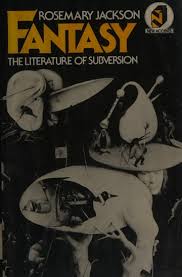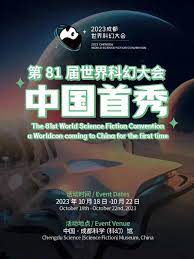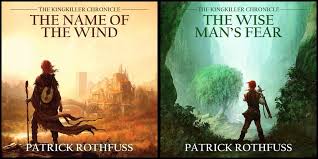Fantasy: The Literature of Subversion
Fantasy literature has long been regarded as a realm of escapism and imagination, where readers can lose themselves in magical worlds and epic adventures. However, beneath the surface of dragons and wizards lies a powerful tool for subverting societal norms and challenging established conventions.
Unlike realistic fiction, which often reflects the status quo, fantasy has the freedom to create alternative realities where the rules of society can be bent, broken, or reinvented. By exploring themes of power, identity, and morality in fantastical settings, authors can critique existing power structures and provoke readers to question the world around them.
One of the key ways in which fantasy achieves this subversive potential is through its use of allegory and metaphor. By cloaking real-world issues in fantastical trappings, authors can address sensitive topics with a degree of distance that allows readers to engage with complex ideas in a more accessible way.
Furthermore, fantasy often features protagonists who are outsiders or rebels challenging the status quo. These characters embody themes of resistance and defiance against oppressive forces, inspiring readers to question authority and stand up for what they believe in.
From J.R.R. Tolkien’s exploration of industrialisation in Middle-earth to Ursula K. Le Guin’s feminist utopias in Earthsea, fantasy literature has a rich history of pushing boundaries and reimagining society. By embracing the fantastical, authors can create worlds that not only entertain but also provoke thought and encourage change.
Exploring Subversion: The Power of Fantasy Literature to Challenge and Inspire
- Fantasy allows authors to critique existing power structures and societal norms in creative ways.
- The genre’s use of allegory and metaphor enables complex ideas to be explored through fantastical settings.
- Fantasy stories often feature protagonists who challenge the status quo, inspiring readers to question authority.
- Authors can address sensitive real-world issues with a degree of distance, making them more accessible to readers.
- By reimagining society in alternative realities, fantasy literature encourages readers to think critically about their own world.
Challenges and Misunderstandings in Subversive Fantasy Literature
- Fantasy literature of subversion may be misunderstood as mere entertainment, overlooking its deeper societal critiques.
- Some readers may struggle to connect with the allegorical elements in fantasy literature, missing out on the underlying messages.
- Authors of subversive fantasy may face backlash or censorship for challenging established norms and values.
- The fantastical nature of subversive fantasy literature can sometimes overshadow the real-world issues it aims to address.
- Readers who prefer traditional narratives may find the unconventional storytelling techniques in subversive fantasy confusing or off-putting.
- Subversive themes in fantasy literature can be polarising, leading to debates and disagreements among readers about their interpretations and implications.
Fantasy allows authors to critique existing power structures and societal norms in creative ways.
Within the realm of fantasy literature, authors are granted a unique opportunity to critique prevailing power structures and societal norms in innovative and creative ways. By crafting imaginary worlds with their own rules and hierarchies, writers can subtly challenge the status quo and prompt readers to reconsider established beliefs. Through fantastical allegories and imaginative scenarios, fantasy literature serves as a potent tool for subversion, inviting audiences to explore alternative perspectives on authority, identity, and social conventions.
The genre’s use of allegory and metaphor enables complex ideas to be explored through fantastical settings.
Within the realm of fantasy literature, the genre’s adept use of allegory and metaphor serves as a powerful tool for delving into intricate and nuanced concepts within fantastical landscapes. By weaving complex ideas into imaginative settings, authors can address real-world issues with a level of depth and creativity that captivates readers. Through this unique approach, fantasy literature not only entertains but also offers a thought-provoking exploration of societal norms, power dynamics, and moral dilemmas in a way that encourages readers to reflect on their own beliefs and values.
Fantasy stories often feature protagonists who challenge the status quo, inspiring readers to question authority.
Fantasy stories have a remarkable ability to present protagonists who defy societal norms and challenge established authority figures. These characters, often portrayed as rebels or outsiders, serve as powerful symbols of resistance and inspire readers to question the status quo. By following these protagonists on their journeys of self-discovery and defiance, readers are encouraged to critically examine the structures of power in their own lives and consider the possibility of effecting change through individual agency and courage. Through the lens of fantasy literature, readers are invited to explore alternative perspectives and contemplate the transformative potential of challenging authority.
Authors can address sensitive real-world issues with a degree of distance, making them more accessible to readers.
In the realm of fantasy literature as a tool for subversion, one notable advantage is the ability of authors to tackle sensitive real-world issues by cloaking them in fantastical settings. This approach provides a degree of distance that allows readers to engage with complex and sometimes challenging topics in a more accessible and engaging manner. By using allegory and metaphor within fantasy narratives, authors can shed light on pressing societal concerns while offering readers a unique perspective that encourages reflection and deeper understanding.
By reimagining society in alternative realities, fantasy literature encourages readers to think critically about their own world.
By reimagining society in alternative realities, fantasy literature encourages readers to think critically about their own world. Through the exploration of different social structures, power dynamics, and moral dilemmas in fantastical settings, readers are prompted to reflect on the parallels with their own reality. This process of comparison and analysis fosters a deeper understanding of societal issues and challenges readers to question established norms and beliefs. Fantasy serves as a mirror that reflects back the complexities of our world, prompting introspection and encouraging a more critical perspective on the status quo.
Fantasy literature of subversion may be misunderstood as mere entertainment, overlooking its deeper societal critiques.
Fantasy literature of subversion, with its ability to challenge societal norms and provoke thought, runs the risk of being misconstrued as mere entertainment. The immersive worlds and fantastical elements may overshadow the deeper societal critiques embedded within the narratives. It is important to recognise that beneath the surface level of dragons and magic, fantasy literature often carries profound messages that question power dynamics, social structures, and ethical dilemmas. By delving beyond the surface allure of escapism, readers can uncover the subversive nature of fantasy literature and appreciate its role in sparking critical reflection on our own world.
Some readers may struggle to connect with the allegorical elements in fantasy literature, missing out on the underlying messages.
In the realm of fantasy literature as a tool of subversion, one potential drawback is that certain readers may find it challenging to fully connect with the allegorical elements embedded within the fantastical narratives. This difficulty in deciphering the underlying messages can lead to a missed opportunity for readers to engage with and appreciate the deeper societal critiques and reflections presented by authors. Without a clear understanding of the allegorical layers, some individuals may overlook the transformative potential that fantasy literature holds in challenging norms and provoking critical thinking about real-world issues.
Authors of subversive fantasy may face backlash or censorship for challenging established norms and values.
Authors of subversive fantasy may face backlash or censorship for challenging established norms and values. In a society where conformity is often prized, pushing the boundaries through fantastical narratives that question authority or present alternative perspectives can be met with resistance. Some readers, critics, or authorities may view such works as threatening or subversive, leading to attempts to silence or censor the authors. Despite these challenges, the power of subversive fantasy lies in its ability to provoke critical thinking and inspire discussions about important social issues, making it a vital and necessary genre in the literary landscape.
The fantastical nature of subversive fantasy literature can sometimes overshadow the real-world issues it aims to address.
The allure of fantastical elements in subversive fantasy literature can occasionally overshadow the underlying real-world issues that authors seek to address. While the imaginative settings and magical elements captivate readers, there is a risk that the depth of social commentary and critique embedded within the narrative may be overlooked or underappreciated. It is essential for both writers and readers to recognise that the fantastical aspects serve as a lens through which to examine and challenge existing societal norms, rather than mere distractions from the core messages and themes being conveyed. Striking a balance between enchanting storytelling and meaningful subversion is key to maximising the impact of fantasy literature as a tool for social reflection and change.
Readers who prefer traditional narratives may find the unconventional storytelling techniques in subversive fantasy confusing or off-putting.
Traditional readers accustomed to straightforward storytelling may struggle with the unconventional narrative techniques often employed in subversive fantasy literature. The divergence from linear plots and predictable character arcs can be disorienting for those seeking more traditional storytelling structures. The deliberate subversion of genre tropes and expectations may challenge readers’ preconceptions and require a willingness to embrace ambiguity and complexity. While subversive fantasy offers a fresh perspective on societal norms and power dynamics, it may not resonate with all audiences who prefer the comfort of familiar narrative conventions.
Subversive themes in fantasy literature can be polarising, leading to debates and disagreements among readers about their interpretations and implications.
Subversive themes in fantasy literature can be polarising, sparking debates and disagreements among readers regarding their interpretations and implications. While some may embrace the challenging nature of these themes and appreciate the opportunity for critical reflection, others may find them unsettling or controversial. The very act of subverting established norms and beliefs within the genre can provoke strong reactions, highlighting the power of fantasy literature to incite thought-provoking discussions and diverse perspectives within its audience.




